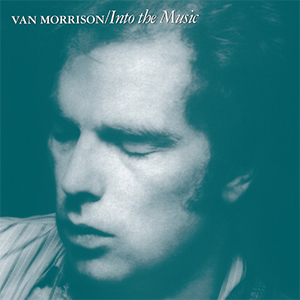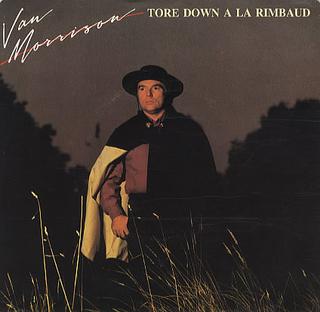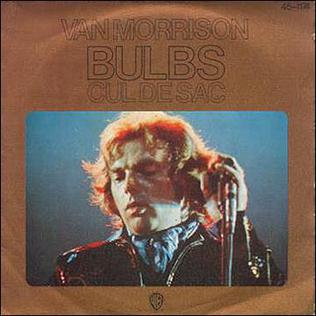Related Research Articles

Sir George Ivan "Van" Morrison is a Northern Irish singer-songwriter, instrumentalist and record producer. His professional career began as a teenager in the late 1950s, playing a variety of instruments including guitar, harmonica, keyboards and saxophone for various Irish showbands, covering the popular hits of that time. Van Morrison rose to prominence in the mid-1960s as the lead singer of the Northern Irish R&B and rock band, Them, with whom he recorded the garage band classic "Gloria". His solo career began in 1967, under the pop-hit orientated guidance of Bert Berns with the release of the hit single "Brown Eyed Girl". After Berns's death, Warner Bros. Records bought out his contract and allowed him three sessions to record Astral Weeks (1968). Though this album gradually garnered high praise, it was initially a poor seller.

Moondance is the third studio album by Northern Irish singer-songwriter Van Morrison. It was released on 27 January 1970 by Warner Bros. Records. After the commercial failure of his first Warner Bros. album Astral Weeks (1968), Morrison moved to upstate New York with his wife and began writing songs for Moondance. There, he met the musicians that would record the album with him at New York City's A & R Studios in August and September 1969.

Astral Weeks is the second studio album by Northern Irish singer-songwriter Van Morrison. It was recorded at Century Sound Studios in New York during September and October 1968, and released in November of the same year by Warner Bros. Records.
"Madame George" is a ten-minute song by Northern Irish singer-songwriter Van Morrison. It appears on the album Astral Weeks, released in 1968. The song features Morrison performing the vocals and acoustic guitar. It also features a double bass, flute, drums, vibraphone, and a string quartet.

Veedon Fleece is the eighth studio album by Northern Irish singer-songwriter Van Morrison, released in October 1974. Morrison recorded the album shortly after his divorce from wife Janet (Planet) Rigsbee. With his broken marriage in the past, Morrison visited Ireland on holiday for new inspiration, arriving on 20 October 1973. While there he wrote, in fewer than three weeks, the songs included on the album.

His Band and the Street Choir is the fourth studio album by Northern Irish singer-songwriter Van Morrison. It was released on 15 November 1970 by Warner Bros. Records. Originally titled Virgo's Fool, Street Choir was renamed by Warner Bros. without Morrison's consent. Recording began in early 1970 with a demo session in a small church in Woodstock, New York. Morrison booked the A&R Studios on 46th Street in New York City in the second quarter of 1970 to produce two sessions of songs that were released on His Band and the Street Choir.

Into the Music is the 11th studio album by Northern Irish singer-songwriter Van Morrison, and was released in August 1979. It includes "Bright Side of the Road", which peaked at number 63 on the UK Singles Chart, and other songs in which Morrison sought to return to his more profound and transcendent style after the pop-oriented Wavelength. The record received favourable reviews from several music critics and was named as one of the year's best albums in the Pazz & Jop critics' poll.
"Into the Mystic" is a song written by Northern Irish singer-songwriter Van Morrison and featured on his 1970 album Moondance. It was also included on Morrison's 1974 live album, It's Too Late to Stop Now.
"Cyprus Avenue" is a song written by Northern Irish singer-songwriter Van Morrison and included on his 1968 album Astral Weeks. It refers to a residential street in Belfast Northern Ireland.
"Listen to the Lion" is a song written by Northern Irish singer-songwriter Van Morrison and featured on his sixth album, Saint Dominic's Preview (1972). Its poetic musings and "bass-led shuffle" lead back to Astral Weeks territory.
"Sweet Thing" is a song by Northern Irish singer-songwriter Van Morrison, released on his second studio album Astral Weeks (1968). It was on the first side of the album, that was under the heading: In the Beginning. The song was later used in 1971 as the American B-side to Morrison's single "Blue Money".
"Astral Weeks" is the title song and opening track on the 1968 album Astral Weeks by Northern Irish singer-songwriter Van Morrison.
"Slim Slow Slider" is the closing track on the 1968 album Astral Weeks by Northern Irish singer-songwriter Van Morrison.

Live at Montreux 1980/1974 is the first official DVD by Northern Irish singer-songwriter Van Morrison. It was released on 16 October 2006. The films consist of two separate performances by Van Morrison at the Montreux Jazz Festival in Switzerland. It was certified gold in May 2007 and platinum in June 2009.

"Tore Down a la Rimbaud" is a song written by Northern Irish singer-songwriter Van Morrison and included on his 1985 album, A Sense of Wonder.

"Bulbs" is a song written by Northern Irish singer-songwriter Van Morrison. It was the only single to be taken from his 1974 album Veedon Fleece, with a B-side of "Cul de Sac" for the US release and "Who Was That Masked Man" for the UK release.
"You Don't Pull No Punches, but You Don't Push the River" is a nine-minute song by Northern Irish singer-songwriter Van Morrison. It appears on the album Veedon Fleece, released in 1974.

"Blue Money" is a song written by Northern Irish singer-songwriter Van Morrison. It was the second of two Top Forty hits from his 1970 album, His Band and the Street Choir, reaching No. 23 on the US charts. The US single featured "Sweet Thing", from the album Astral Weeks, as the B-side. It was released as a single in the UK in June 1971 with a different B-side, "Call Me Up in Dreamland". The song became Morrison's third best selling single of the 1970s, remaining on the charts for three months.

"Cul de Sac" is a song written by Irish singer-songwriter Van Morrison. It first appeared as the seventh track on Morrison's 1974 album Veedon Fleece, and was released as the B-side to the single "Bulbs".
References
- ↑ Rogan, No Surrender, p. 298
- ↑ Heylin, Can You Feel the Silence?, p.279
- ↑ "The Essential Van Morrison - Van Morrison | Songs, Reviews, Credits | AllMusic" – via www.allmusic.com.
- ↑ "Fair Play - Van Morrison | Song Info | AllMusic" – via www.allmusic.com.
- ↑ "Van Morrison Tour Statistics | setlist.fm". www.setlist.fm.